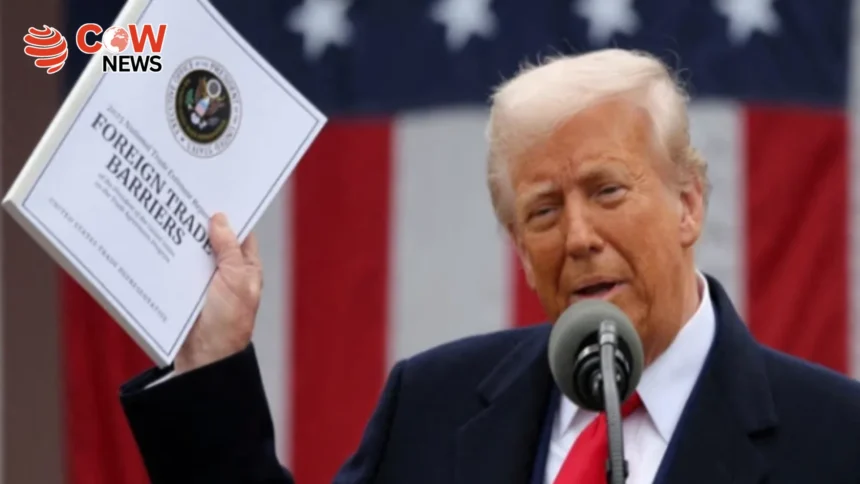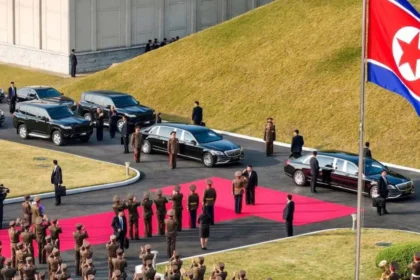Washington / Islamabad( The COW News Digital)In a significant diplomatic development, the United States has imposed a 19% counter-tariff on Pakistani exports, offering Islamabad a comparative advantage over New Delhi, which faces a 25% tariff. The announcement came from the White House under the administration of former President Donald Trump, signaling a strategic policy shift in South Asia’s trade dynamics.
The new tariff structure shows Pakistan receiving the most favorable rate among the region’s three major economies — Pakistan, India, and Bangladesh — with Bangladesh facing a 20% tariff. The White House emphasized that this policy reflects “a tailored approach” to bilateral trade, based on recent diplomatic engagements and geopolitical considerations.
According to the statement, India is now grouped with countries like Kazakhstan, Tunisia, and Moldova, all of which are subjected to the 25% tariff slab. In contrast, Pakistan shares the 19% rate with Indonesia, Malaysia, the Philippines, Thailand, and Cambodia, signaling a relatively preferential status.
Several other countries have been hit with even steeper tariffs. South Africa faces a 30% rate, while Switzerland has been levied with a 39% tariff. Israel, a close U.S. ally in the Middle East, is subjected to 15%. Notably, Canada’s tariff was raised from 25% to 35% due to ongoing policy disagreements, marking a further shift in U.S. trade relations.
Sources suggest that this preferential treatment toward Pakistan is the result of extensive diplomatic efforts, including the visit of COAS General Syed Asim Munir to Washington, Prime Minister Shehbaz Sharif’s communication with Secretary of State Marco Rubio, Deputy PM Ishaq Dar’s meetings, and Finance Minister Muhammad Aurangzeb’s talks with the U.S. Commerce Secretary.
Analysts believe that the lowered tariff for Pakistan reflects Washington’s strategic interest in balancing regional influence and acknowledges Pakistan’s mature foreign policy and improving bilateral ties with the U.S.
While the Trump administration’s policy shift has sparked debate, experts urge Islamabad to capitalize on this opportunity by boosting exports and improving trade competitiveness. They warn, however, that any benefit depends on efficient policy execution and timely responses from both the public and private sectors.
As global trade dynamics continue to shift, this move could potentially reshape Pakistan’s trade prospects in the U.S. market, setting a new precedent in the region.







